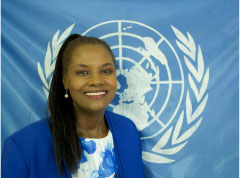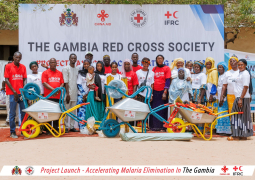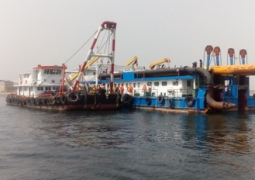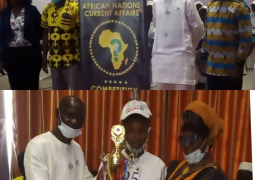
Now, the effects of the pandemic are threatening to further unravel decades of progress to build a more inclusive and equal society for everyone. But we have come too far to slow down. Our strength and hope for the future lies in our shared vision for a more prosperous nation.
While the pandemic has upended lives and shattered economies, it has also revealed the power of unity and solidarity in development. When we all mobilized and came together to fight COVID-19, we protected thousands, including our most loved ones, from the virus and averted a potentially worse disaster. Through multilateral cooperation, a hallmark of the United Nations, we are now starting to build back better.
This week, the world is celebrating the 76th anniversary of the United Nations. For 76 years, the United Nations has been working with governments across the world to prevent conflict, restore hope and dignity for the deprived and build a better world for everyone. Our mission in The Gambia is no different – we work with the government, civil society, private sector, local communities, children, young people and women to support the country’s development aspirations and protect human rights.
Fundamentally, at the heart of the work of the United Nations in The Gambia are the rights, welfare and development of young people and women, two groups that represent beacons of hope. Their energy and determination to overcome the numerous challenges they face daily and usher in a new era of hope and prosperity for everyone are the reasons we must remain hopeful for the future.
We will work with young people and women to bridge the inclusion and gender gaps and provide more opportunities for growth and development. Young people and women must have access to quality education, training, skills building and services to innovate and, in so doing, help them build lives protected from violence, abuse and exploitation.
Building back better requires sustained efforts to tackle the pandemic, and our best chance is vaccination. Thus, the United Nations is leading unprecedented global and multilateral efforts to ensure equitable distribution of COVID-19 vaccines across the world. Despite being the smallest country on mainland Africa, The Gambia was among the first five countries on the continent to receive the COVID-19 vaccines via the COVAX facility – a coalition of UN and other agencies working to make vaccines available to all. As a result, more than 12 per cent of the total eligible population in The Gambia has been fully vaccinated, but the road ahead is still long.
With the arrival of more vaccines, we must encourage everyone to get vaccinated. We must step up national efforts to make vaccines available to those willing to take the jab and encourage the unvaccinated to consider taking the vaccine. We must remind everyone that the virus is still with us, cases may still rise and more disruptions to education and economic activities will further stall the country’s recovery efforts. We can minimize these aftershocks and help protect more people from COVID-19 deaths and hospitalizations when we all get vaccinated.
As with the national effort to curtail the pandemic, the United Nations has always supported The Gambia through numerous other challenges to its social and economic development. We have always been there to help build a society for every single Gambian, irrespective of faith, gender or economic standing – a society where every child can go to school, where every girl and woman is protected from violence, where the environment is protected, where the economy is strong and inclusive, where jobs are available for all and where migrants, refugees and other vulnerable groups are also protected. In short, no one should be left behind.
As The Gambia heads to the polls to vote in the presidential elections in December, the United Nations encourages all actors, including political parties and their leaders, to promote peace during and after the vote. This is a commitment we must all make and hold ourselves accountable to.
Happy UN Day!





